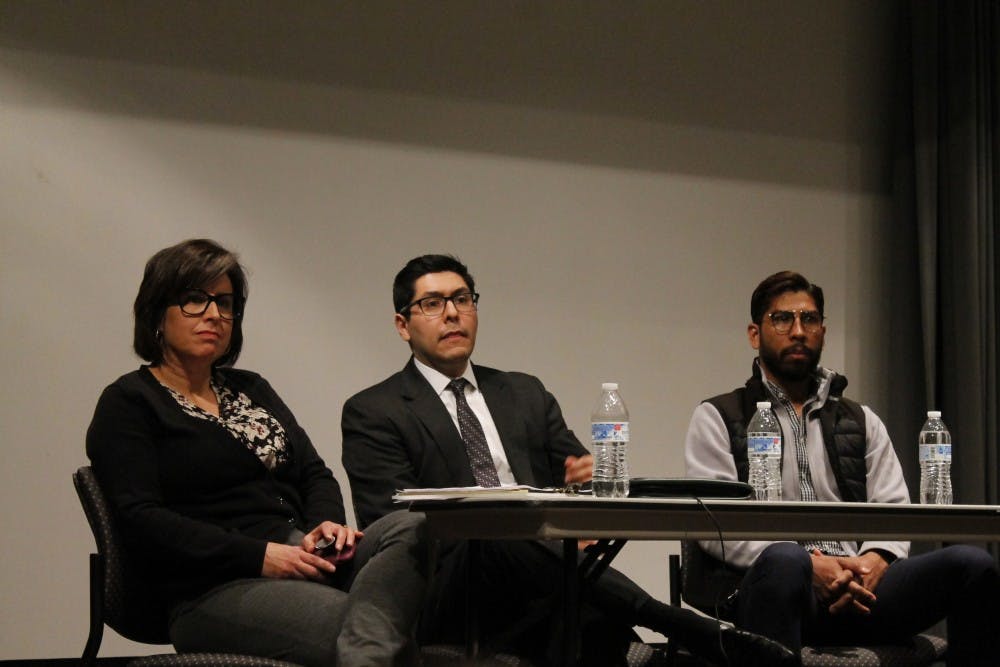“I just want you to see what an illegal immigrant looks like,” Lopez said. “To try to change the perspective of some people."
There are an estimated 11.3 million undocumented immigrants in the country, and a very limited number of ways to become documented, said Raul Pinto, immigration and refugee attorney at the North Carolina Justice Center. The crises at the border are a result of those limited pathways, he said.
“If you are seeking asylum in the United States, there’s only five protected grounds,” Pinto said. “If you are escaping gang persecution, if you are escaping domestic violence, if you are escaping some of the economic turmoil that has been created by US policies, that’s not a reason that is protected by the law.”
The experience of immigration and deportation dramatically affects children, said Victoria Romero, program manager for case management services and outpatient therapist at El Futuro, Inc. in Durham.
“Most children undergoing this kind of separation have already experienced trauma and stress in their home countries,” Romero said. “Many of these children have already experienced separation from their family members or caregivers before arriving at the border.”
Yet, migrating may still be perceived as a better or safer alternative relative to the conditions they’re facing at home, Romero said.
“In the midst of a trauma, the parent, as a buffer and a protector, is taken away,” Romero said of parent-child separations.
These issues surrounding ICE are not new problems, said Viridiana Martinez, immigrant youth organizer and director of Alerta Migratoria.
“Sadly, raids are nothing new,” Martinez said. “The types of tactics they have been using are not new either. ICE is a rogue agency, they have for years done what they want. Unless some congressional oversight happens, they get away with it.”
Martinez stressed the importance of looking to those directly around us and seeing what they are doing about the issue. Local officials have a lot of power regarding ICE and immigration, Martinez said.
“There has to be ways for us to raise our voice and to push these people,” Martinez said.
Pinto said it's important for people to hear from those who have been impacted, hear their stories and suffering and learn how to be better allies.
To get the day's news and headlines in your inbox each morning, sign up for our email newsletters.
“In predominantly white institutions, a lot of these conversations aren’t had," said Johanna Contreras, a final year graduate-student in the School of Social Work. "So we felt the need to organize this event to discuss issues of immigration, how immigration policies are impacting families and communities, kind of give people more information and bring awareness about these issues."
Meanwhile, Lopez said as an undocumented immigrant, he must continue to prove himself as a responsible citizen.
“I have been working, contributing, raising a child and trying to make something better of myself, that is what we all want to do," Lopez said. "This is such a great country, honestly. This is a country of opportunities. You can be whoever you want to be here.”
university@dailytarheel.com



